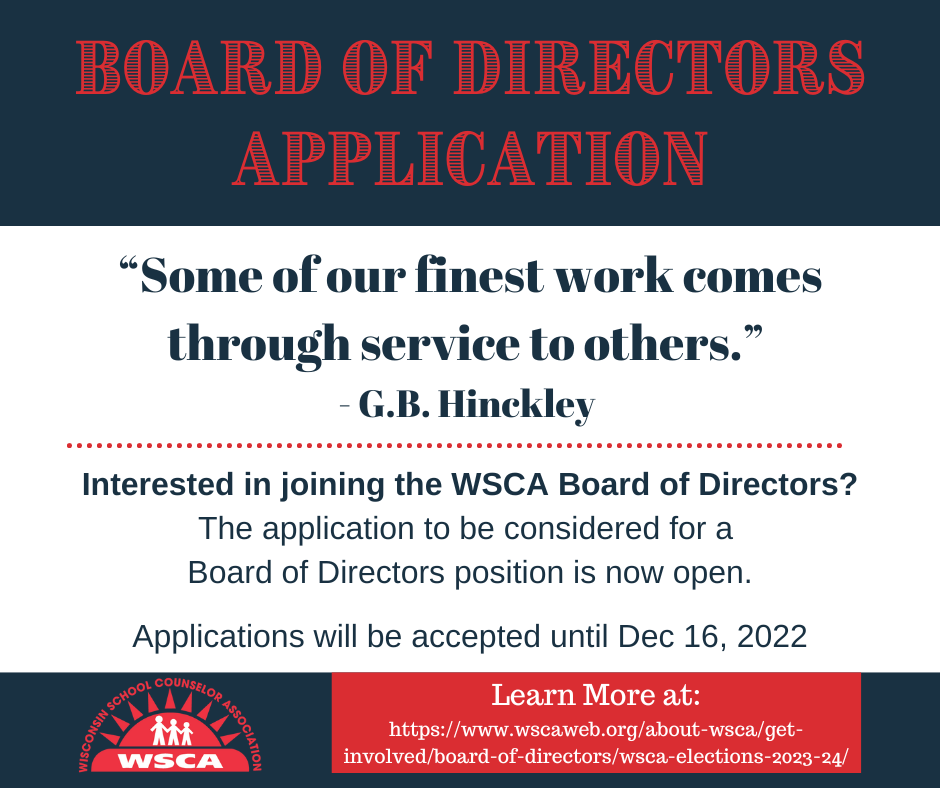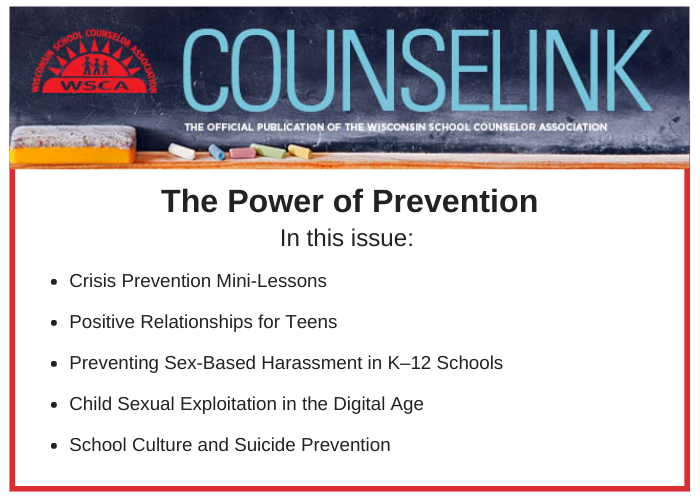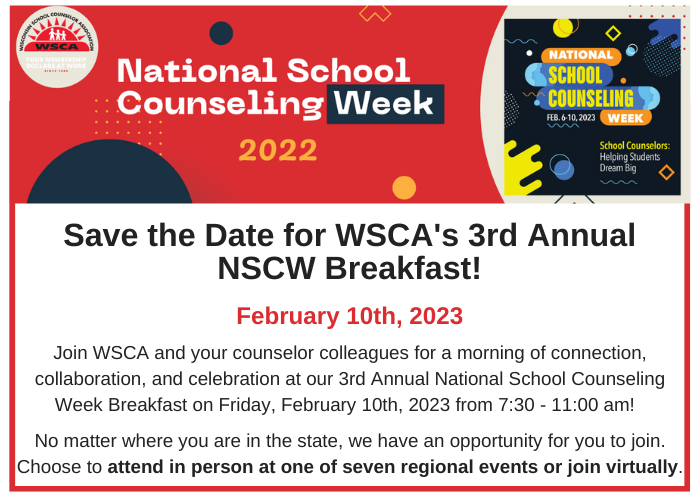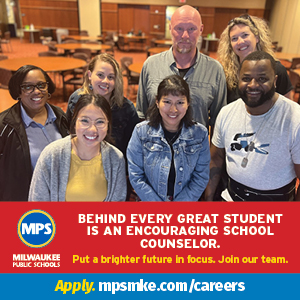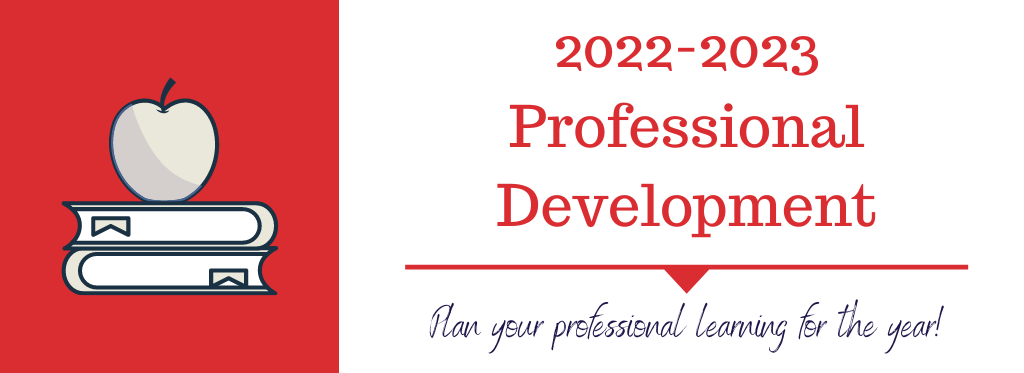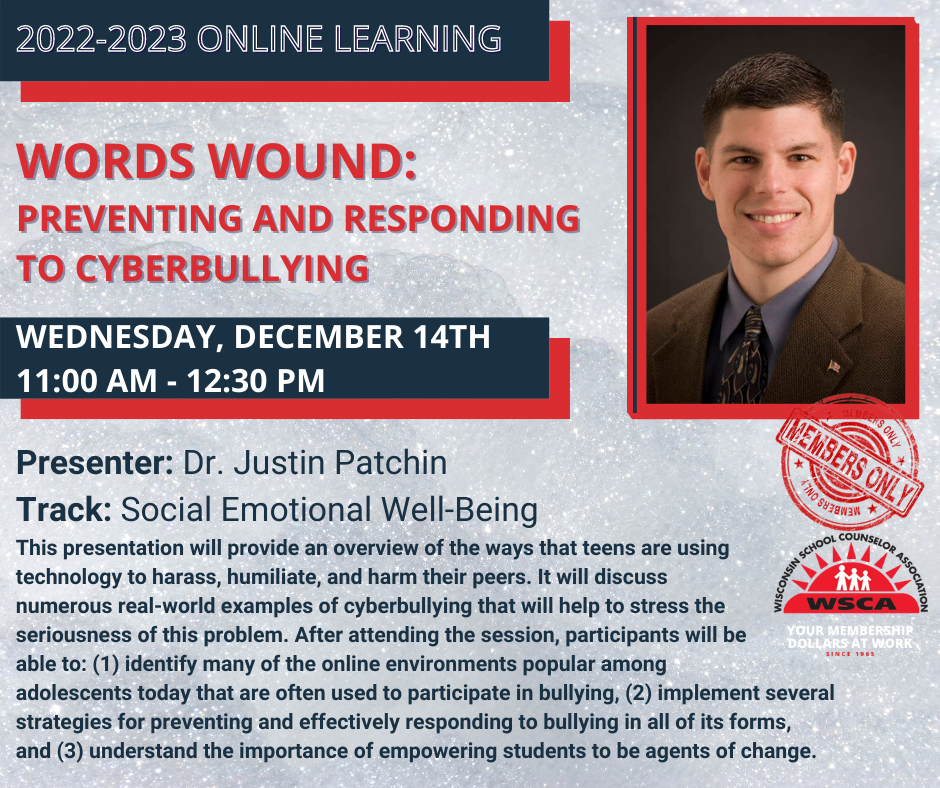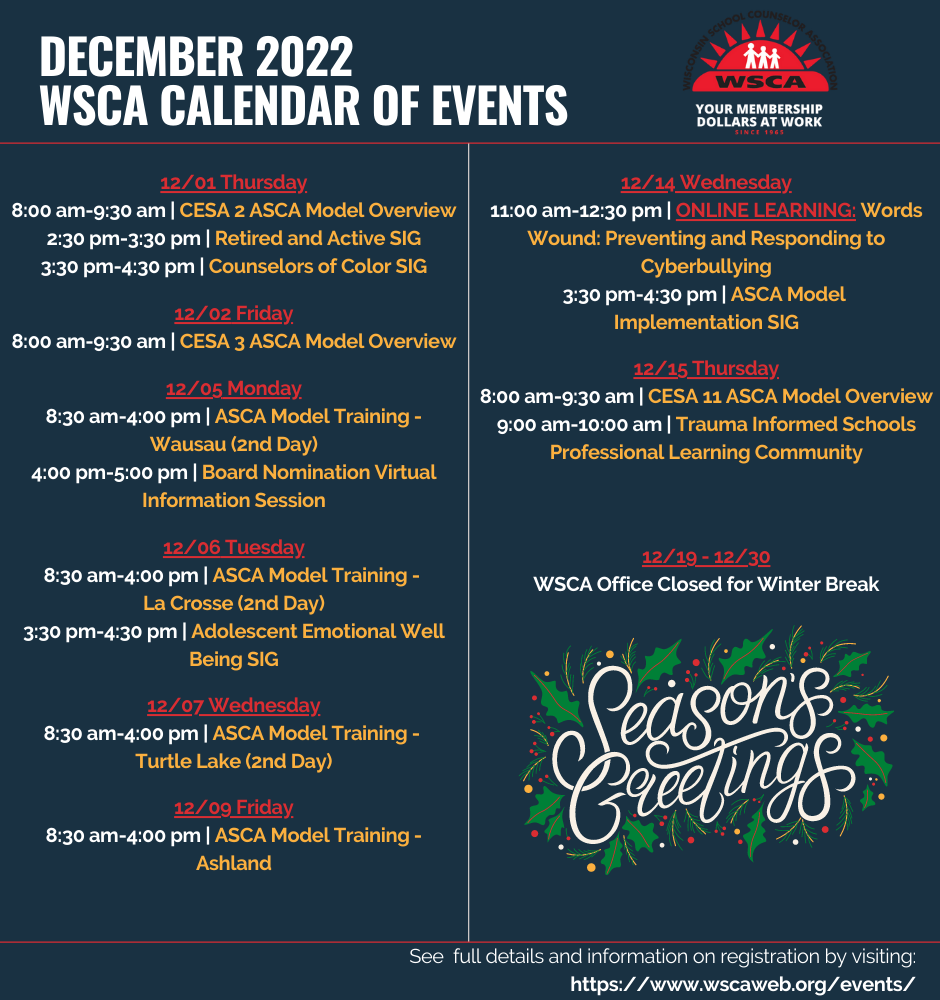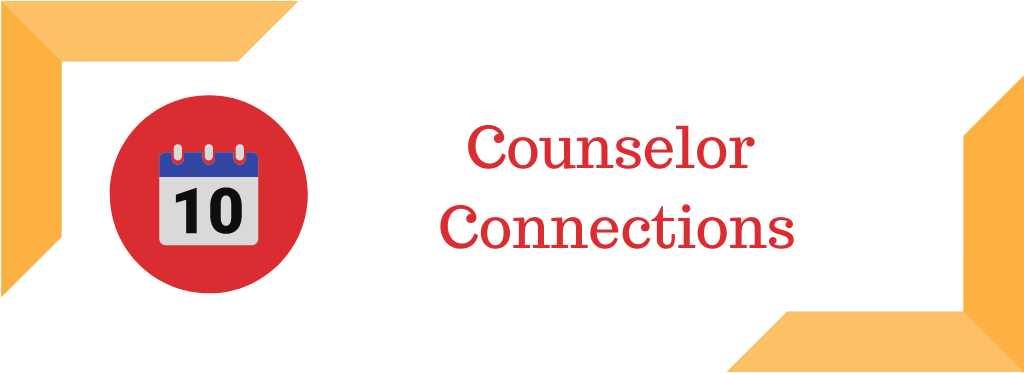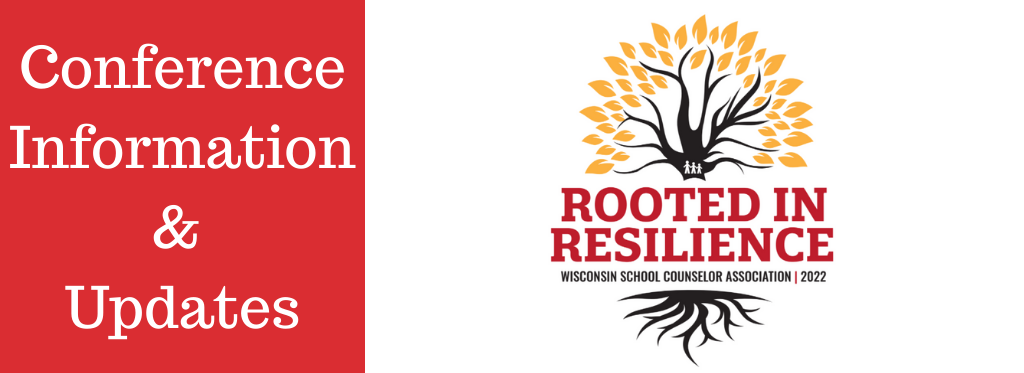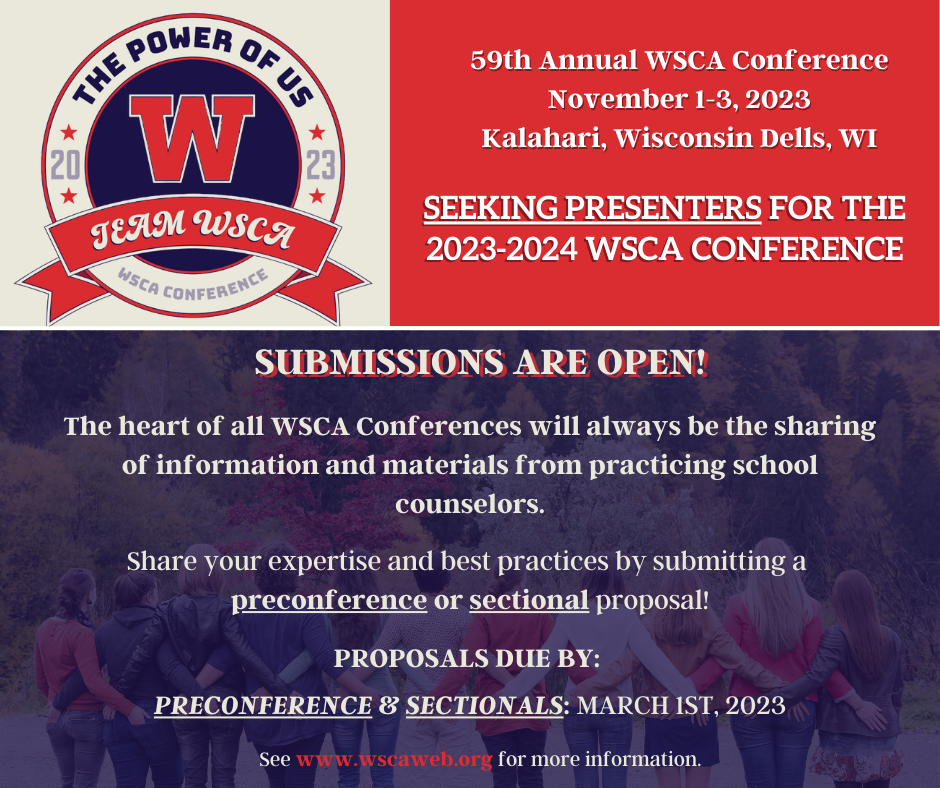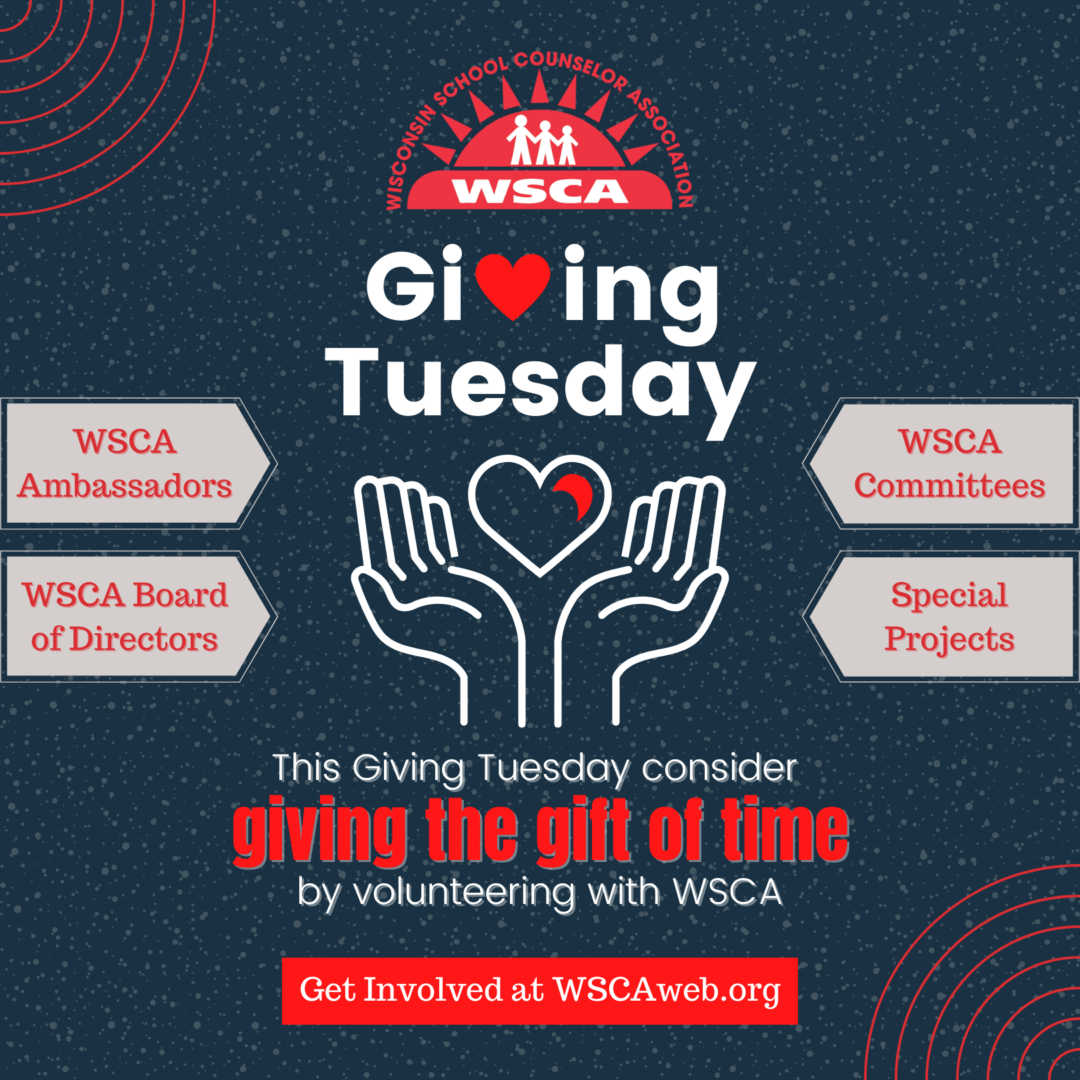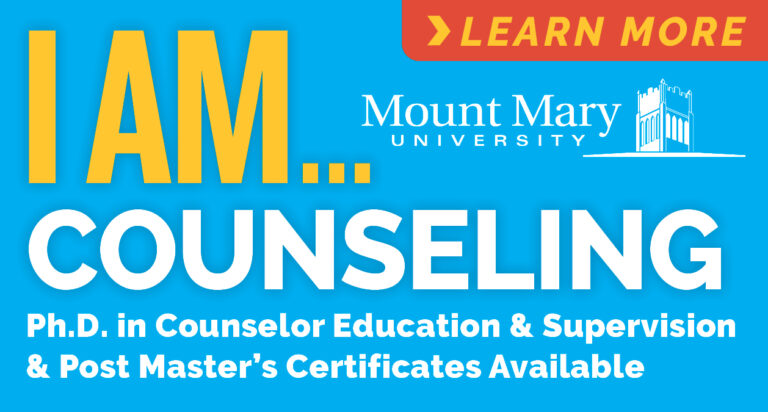December 2022

Table of Contents
A Message from the WSCA Executive Director

Dear WSCA Members,
As I work with counselors across the state, I often hear how they are seeking resources to support their students. This is one of the reasons we have such an amazing conference every year, as counselors share and learn from each other about school counseling program best practices.
Another concern I have been hearing is the significant increase in mental health concerns students are facing. If we look at our counseling model and MTSS we need to consider if there needs to be more tier one (universal) and tier two services available to support students. Schools and the community do not have the capacity to serve each and every student individually to manage mental health. What universal, psychoeducation practices do you have in place in your schools? Do the ones you have need to be expanded? How do you advocate delivering this information to students, especially with schools under pressure to increase academic performance? I would encourage you to advocate to your administration to incorporate universal mental wellness into your counseling program. This is one step that we need to have proactive, preventive programs to support students in regulating their emotions before an acute crisis.
As a starting point, take a look at a few of the many FREE curriculums that are available for schools.
Hopeful Minds Curriculum
Hopeful Minds is a new curriculum project developed by iFred, the International Foundation for Research and Education on Depression. The curriculum is based on research that suggests hope is a teachable skill. The curriculum aims to equip students, educators, and parents with the tools they need to find and maintain hope even during the most trying times.
All Hopeful Minds materials are free, so please share with anyone interested in learning these critical skills necessary for all globally. Hopeful Minds meets the CDC National Health Education Standards (NHES), state-specific Social and Emotional Learning Standards (SEL), and anti-bullying guidelines. Hopeful Minds is trauma-informed and aims to reduce the impact of inequality and discrimination.
https://hopefulminds.org/hopeful-minds-curriculums/
Work2BeWell
Work2BeWell (W2BW) is a mental health and wellness program focused on providing mental health resources and education for teens, parents, and educators. Our goal is to promote teen wellness across the country, and work to normalize the conversation about mental health and reduce the stigma that surrounds it.
Work2BeWell resources are now available nation-wide to ensure that parents, teens, and educators have access to free, clinically-vetted curriculum and a movement to reduce stigma and amplify teen voices within mental health. We are working to support this same access to resources and advocacy with teens across the country.
https://work2bewell.org/curriculum/mental-wellness/
Active Minds
Active Minds is a national leader for young adult mental health advocacy and suicide prevention. Headquartered in Washington, DC, Active Minds brings to mental health what no other organization can — the voice of young people who are disproportionately affected by mental illnesses and the way mental health is addressed on campuses and in society at large.
Now in its nineteenth year, Active Minds is present in more than 1,000 schools, communities and workplaces nationwide, including over 600 student-led chapters. Our programs and services empower young adults to reduce the stigma surrounding mental health, create communities of support, and ultimately save lives.
The Active Minds Peer-Powered Mental Health Curriculum for High Schools empowers and prepares high school students with the knowledge and skills to start conversations about mental health. The FREE curriculum can be facilitated in classrooms or to enhance the mental health programming of Active Minds’ high school chapters or other student groups. High schools do not need to have an Active Minds chapter to request the curriculum.
Mental Health & High School Curriculum Guide: Understanding Mental Health and Mental Illness Version 3 (USA edition: Washington State)
The Mental Health and High School Curriculum Guide (the Guide) is the only evidence-based mental health curriculum resource that has been demonstrated to improve both teachers’ and students’ mental health literacy through usual teacher education and application in the classroom in a variety of program evaluations and research studies in Canada and elsewhere.*
The Guide has been developed to help enhance the mental health literacy of students and targeted to be used in grades nine and ten (ages 13 to 15 years). This is the time of the lifespan in which the diagnoses of mental disorders begin to increase dramatically; it is thus essential that young people be able to have the knowledge, attitudes and competencies to help themselves and others if necessary. Mental health literacy has four components:
1) Understanding how to optimize and maintain good mental health
2) Understanding mental disorders and their treatments
3) Decreasing Stigma
4) Enhancing help-seeking efficacy (knowing when and where to get help and having the skills necessary to promote self-care and how to obtain good care)
DPI Mental Health Resources
Mental Health Resources for Elementary, Middle and High School Students
https://dpi.wi.gov/sites/default/files/imce/sspw/pdf/Mental_Health_Resources.pdf
A Comprehensive Approach to Bullying Prevention
https://dpi.wi.gov/sspw/safe-schools/bullying-prevention
Awareness and Prevention of School-Based Bullying Online Training Program
https://widpi.co1.qualtrics.com/jfe/form/SV_4ZQdle0DetTsDzM
Mental Health Literacy and Wellness Education
https://dpi.wi.gov/sspw/mental-health/framework/universal-practices/literacy
~Stacy Eslick
A Message from the WSCA Board of Directors

Hello WSCA members!
Thank you all for another fantastic annual conference at the Kalahari. We hope you found the conference worthwhile, informative, and rejuvenating. One of our tasks as board members at the conference was to listen and gather information from our members-you! This helps us guide our planning and vision to continue to serve you best. We gathered this information in two ways, through a board member listening session and by board members engaging with attendees during sectionals, lunch, breaks, etc., and asking specific questions selected by the board.
The questions we focused on were:
- What is going well in your school?
- What are some challenges you are facing this year?
- In three years, what are your hopes for the school counseling profession?
- How can the WSCA organization support your work?
We were able to gather some great information from these conversations. The answer that seemed to pop up the most regarding what was going well in schools was working with and building relationships with students. Other frequent answers included a feeling of a more “normal” start to the year, supportive administrators who understand the role of the counselor, parents reaching out for help and sharing their struggles, and added support thanks to additional funding.
Of course, with everything going well, there are also challenges. Mental health is the answer that came up the most consistently when members were asked about challenges. This included not just the mental health of our students but of counselors, staff, and parents. Other challenges stated include: student delays in academic and social skills, staff shortages, counselors subbing or taking on additional duties, concerns about what will happen when additional funding ends, administration not understanding the counseling role, equity issues surrounding race and LGBT+ students, and divisiveness in communities impacting schools.
While we know there are challenges in the current educational landscape, we want to be forward-thinking as we look to address these challenges. Members stated that in three years, they are hoping that things go back to normal after the tumultuous years we have had with the pandemic. You also stated hope that the role of the counselor is clearly defined and supported by every administration, the need for more work around recognizing and identifying racial trauma, counselors no longer having to deal with extra duties, and getting back to a place where our communities support and trust their schools. Members stated that WSCA can help fulfill these hopes by continuing to advocate for the counseling role and educate administration and other leaders regarding the importance of school counselors. You also expressed a need for more culturally responsive training, continued offerings of different forms of PD, including in-person, regional, and virtual, and the importance of the WSCA annual conference.
As you can see, the board came away with a comprehensive amount of viewpoints and information. We will take this information and reflect on it as we progress throughout the 2022-2023 school year and into 2023-2024. We thank you for attending the conference and allowing us to engage with you to best support you.
Thank you for all you do, and happy holidays,
~Katie McCormick, Board Member
2022-2023 Professional Recognition Highlight
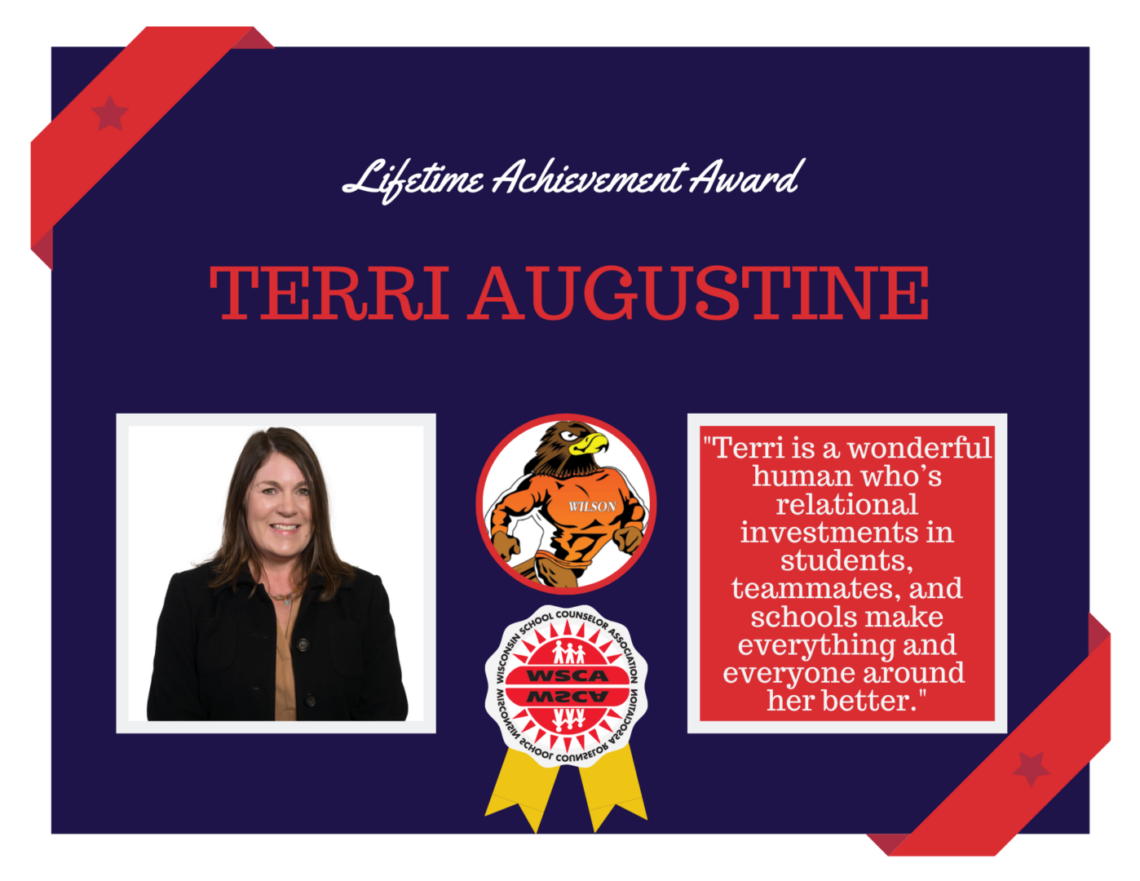
Terri Augustine, Wilson Middle School, Manitowoc Public School District
WSCA 2023 Lifetime Achievement Award
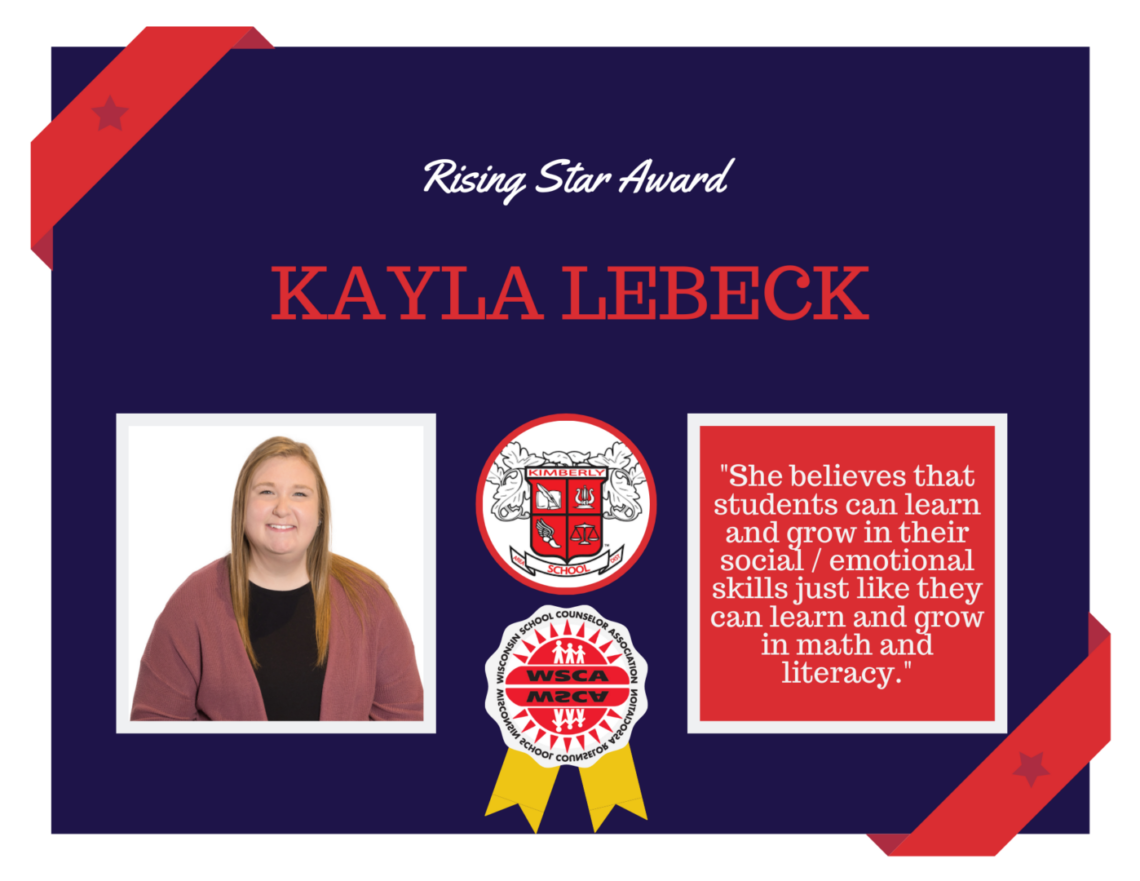
Kayla LeBeck, Westside Elementary, Kimberly Area School District
2023 Rising Star Award
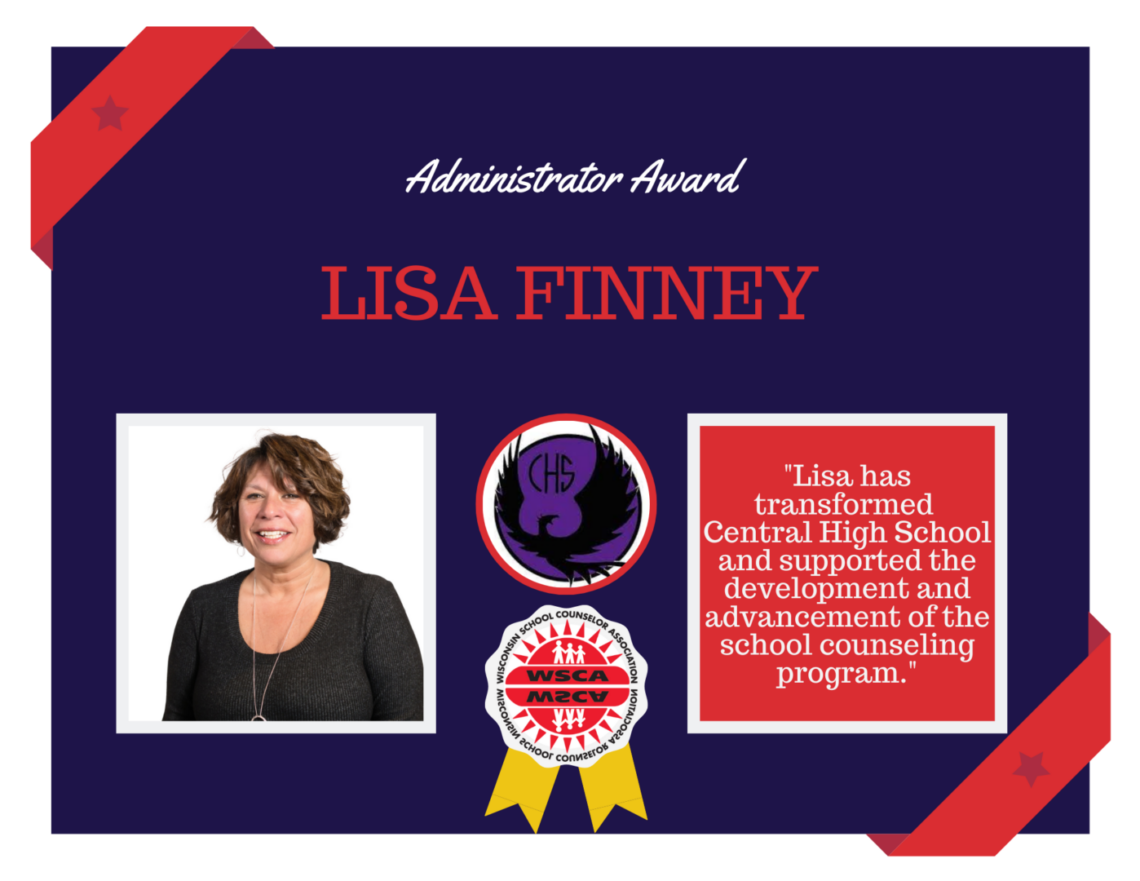
Lisa Finney, Principal, Central High School, Sheboygan
WSCA 2023 Administrator Award
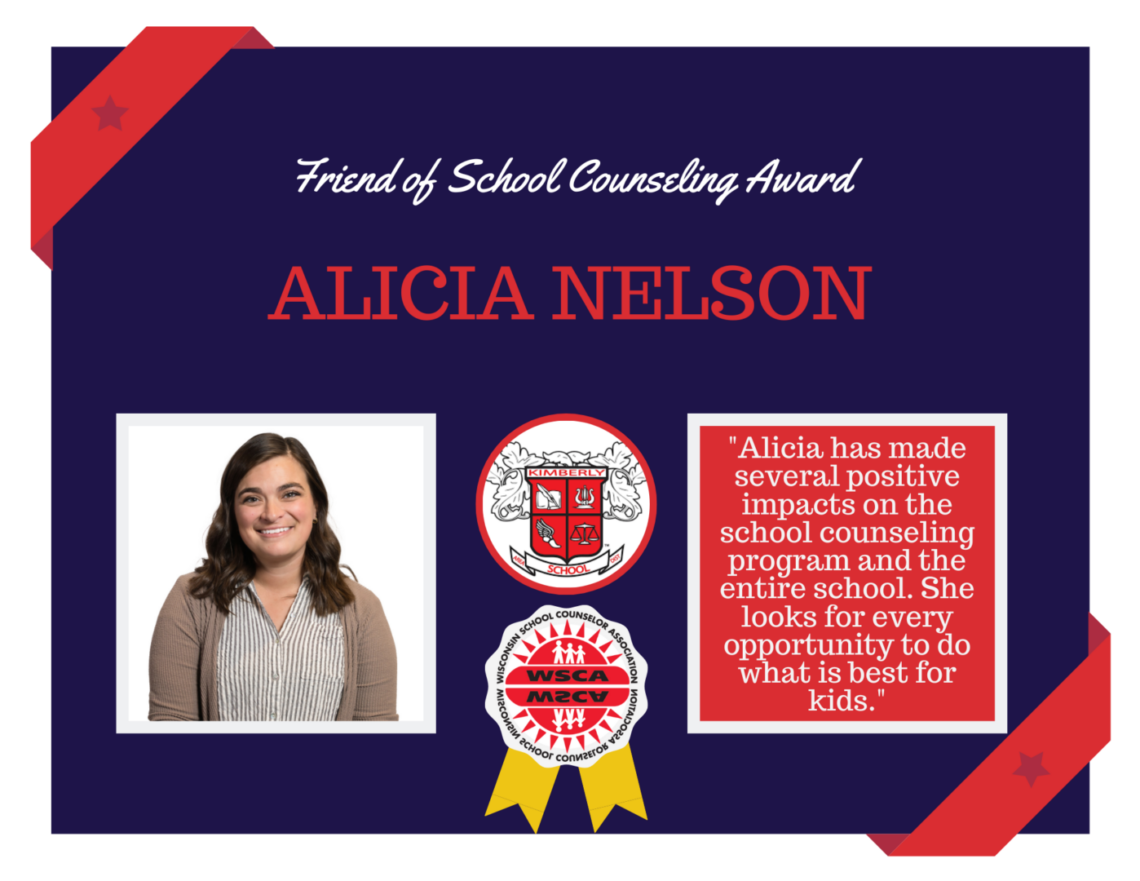
Alicia Nelson, Special Education Teacher, Westside Elementary, Kimberly Area School District
WSCA 2023 Friend of School Counseling Award

Feature Article – Doubling Down: Optimizing The Hand Life Has Dealt
Doubling Down: Optimizing The Hand Life Has Dealt
Scott Bakkum and Paige Wrecke
Paige Wrecke- School Counselor at Mukwonago High School; Scott Bakkum- Mental Health Navigator for the Kettle Moraine School District
Have you ever felt like you didn’t have a chance in the game of life because of the cards you were dealt? In poker, having an ACE can be a real advantage to the eventual outcome of the game. Multiple ACES improve your chances dramatically of winning any given hand in poker; but what about real life? As school counselors, we see kids who have been dealing with ACES (Adverse Childhood Experiences) in a much different way, and it hasn’t been to their advantage. On the contrary, it has served as the backdrop for personal, social, emotional, physical, and academic challenges that they will struggle with, potentially for a lifetime. As counselors, we can’t change the cards these kids have been dealt, but maybe, just maybe we can help them to reshuffle the cards they have and support them to develop skills and strategies to overcome the ACES that can impact their future.
We know as counselors that prevention is built on protective factors. The more protective factors that are present for a child, the more likely the child can overcome adversity in their daily life in a healthy way. What do these protective factors look like, and how can we as counselors foster them to support kids with ACES in their lives? The power of one caring adult in a child’s life has been researched and proven time and again to be one of the most important protective factors a child needs to develop RESILIENCE. As counselors, we have the incredible opportunity to not only be that caring adult for our students in our schools but also to develop systems that ensure multiple exposures to trusted adults who have been taught the skills to identify, intervene, and support. This increases the likelihood these connections are made at least once, if not with multiple adults on multiple occasions.
Protective school climate and culture should be based on all school staff nurturing safe, caring, and connected relationships with each child so that each one feels empowered to grow their own capacity for empathy and compassion. “Maslow before Bloom” is one of my favorite sayings… and it is so true! We have all heard the phrase “it takes a village.” Social connections can be a very powerful protective factor in helping kids realize they have a network of support around them as they take on daily challenges. Volunteering, community organizations, and recreation department activities can help kids build healthy and positive connections. Parenting is the hardest job in the world, but in our role as school counselors, we can help support parents with community resources and workshops to support their own development toward a positive and engaged parenting style. If we, as school counselors, can help shift the focus of our efforts to the prevention, early intervention, and proactive end of the spectrum, we may be able to lessen the need for crisis intervention and reactive strategies on the other end of the spectrum. Kenny Rogers’s famous song said it best, “You gotta know when to hold ‘em, know when to fold ‘em, know when to walk away, know when to run”….children may not have the option to run or walk away, but through our unwavering support we can help them stay in the game.
You Spoke, We Listened
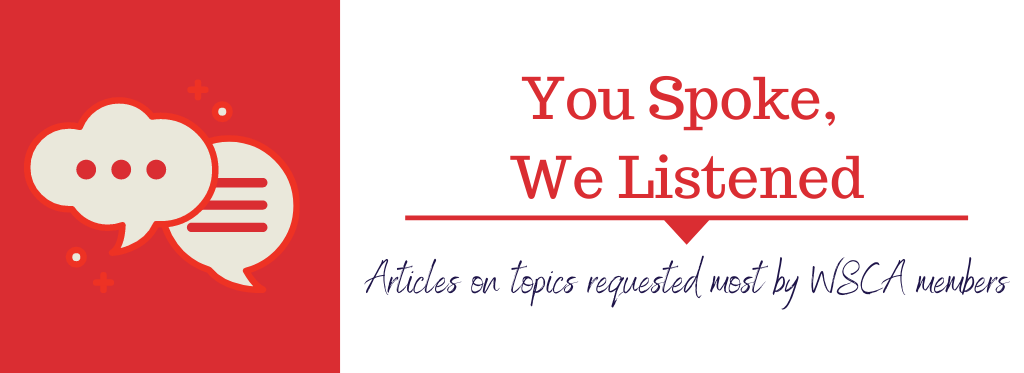
![]()
Free Resources From The Anti-Defamation League
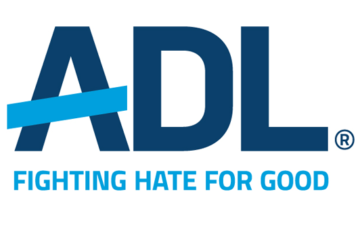 The Anti-Defamation League (ADL) works in partnership with schools, organizations, and communities to design and deliver anti-bias education, both online and in person. When we learn, as individuals, how to challenge bias, discrimination, and hate – together, we have the capacity to foster equity and inclusion. ADL provides free anti-bias education through professional learning, educational programs, resources, and strategies to build and sustain equitable and inclusive environments.
The Anti-Defamation League (ADL) works in partnership with schools, organizations, and communities to design and deliver anti-bias education, both online and in person. When we learn, as individuals, how to challenge bias, discrimination, and hate – together, we have the capacity to foster equity and inclusion. ADL provides free anti-bias education through professional learning, educational programs, resources, and strategies to build and sustain equitable and inclusive environments.
Here are a few FREE resources that you can use in your schools:
- Every month the ADL highlights a book in its Books Matter program. This highlight includes as teacher and family discussion guide and extension activities around the theme of the book. Check out the 70+ books and related resources here.
- ADL published “Responding to Bias Incidents in Middle and High Schools: Resources and Best Practices for School Administrators & Educators”, which can also be adapted for elementary school. This toolkit is a resource to help educators and school administrators strengthen their responses to school-based incidents of bias and bigotry. Whether it be a racist “joke,” slur, stereotype, or some other manifestation of implicit or explicit bias, all school community members must be committed to addressing bias-related incidents in our schools. In this toolkit, you will find ADL’s “P.E.A.C.E.” framework to guide you in proactively preparing for and responding to hate and bias-related incidents in school. To assist you in incorporating critical reflection and learning in your response to bias-related incidents, we have provided descriptions of incidents most frequently reported to ADL. This guide also provides an overview of several hate symbols, slurs, and culturally embedded stereotypes and outlines appropriate reflection and discussion questions for the classroom.
- Pyramid of Hate – This infographic illustrates the prevalence of bias, hate, and oppression in our society. It is organized in escalating levels of attitudes and behavior that grow in complexity from bottom to top. Like a pyramid, the upper levels are supported by the lower levels; unlike a pyramid, the levels are not built consecutively or to demonstrate a ranking of each level. Bias at each level reflects a system of oppression that negatively impacts individuals, institutions, and society. Unchecked bias can become “normalized” and contribute to a pattern of accepting discrimination, violence, and injustice in society. While every biased attitude or act does not lead to genocide, genocide occurs within a system of oppression in which the attitudes and actions described at the lower levels of the pyramid are accepted. When we challenge those biased attitudes and behaviors in ourselves, others and institutions, we can interrupt the escalation of bias and make it more difficult for discrimination and hate to flourish.
Learn more about the ADL as well as additional resources at https://www.adl.org/. If you have specific questions, please reach out to Bill Hicks, Associate Education Director, at bhicks@adl.org,
![]()
Important Peer-to-Peer Suicide Prevention Grant Announcement from DPI
The Student Services/Prevention and Wellness Team at DPI is pleased to announce the second round of Peer-to-Peer Suicide Prevention Grants. The applications are due to DPI on Friday, December 9, at 4:30 p.m. With a focus on training Wisconsin students to recognize the signs of suicide shown by fellow students, peer-to-peer programs use messages of hope, health, and strength to develop peer leaders and resources for students who may be struggling.
Any school at which pupils attend high school grades (including public, tribal, charter, and private schools), which has not already applied in the 2022-23 school year, is eligible for this grant. Recipients of a grant under this program may use the grant funds to support an existing peer-to-peer suicide prevention program or implement a new peer-to-peer suicide prevention program. The amount of each individual grant award may not exceed $1,000.
Click here to find out all the details.
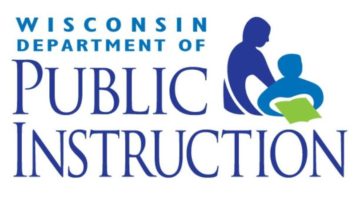
![]()
Feed the FAFSA Frenzy: Wisconsin Students Eligible for Federal Student Aid
Shared from a DPI ConnectED article written by Andrea Donegan (October 18, 2022)
October might call to mind all things fall– pumpkins, apple cider, crisp nights, and falling leaves. But it’s also the beginning of the Free Application for Federal Student Aid (FAFSA) season! As of October 1st, the FAFSA application is open, and students can begin filling out and filing their FAFSA.
Behind the scenes, Wisconsin has numerous organizations and stakeholders working diligently to increase the FAFSA completion rates by developing, collating, and sharing resources. For the 2021- 2022 school year, Wisconsin ranked 38th for FAFSA completion, with 50 percent of students submitting an application, below the national average by several percentage points (NCAN 2022).
There are extensive supports and resources available for students to file the FAFSA and secure the needed financial resources to begin and finish their post-secondary education. We are urging everyone to help feed the FAFSA frenzy and get the word out to students, families, administrators, teachers, pupil services, community partners, and anyone else who can move the dial past 50 percent and toward 75 percent FAFSA completion rates in Wisconsin.
Supporting FAFSA completion can help students attain the financial support necessary for pursuing their post-secondary dreams, such as trades and skills certificates, two-year college, and four-year college. In 2021, Wisconsin left $49,625,120 of Pell grant funding on the table (Breen, AlQaisi, and DeBaun 2022).
Pell grants are one type of aid available and are need-based awards that do not need to be repaid. Thus, they provide financial aid support, especially for students from low-income backgrounds.
As parents, school staff, community partners, and state-level stakeholders support the FAFSA completion process, some excellent resources are available in addition to the Federal Student Aid website, including:
Wisconsin Educational Opportunity Program (WEOP) – WEOP offers free services to students and families throughout the state including: financial aid application assistance, college admission support, one on one academic, career or personal advising, setting up a personal educational plan, and transition strategies from 8th grade to high school as well as from 12th grade to college.
DPI FAFSA Webpage – Resources available for promoting FAFSA filing, FAFSA filing support, and FAFSA Data Sharing Agreements (availability of your twelfth-grade students’ Free Application for Federal Student Aid [FAFSA] completion status in WISEdash for Districts).
College Goal Wisconsin – Free virtual (every Wednesday in October from 6 – 8 p.m.) and in-person events throughout the state to assist students and families with completing the FAFSA.
Fair Opportunity Project (FOP) – Wisconsin FAFSA Support such as FREE personalized help with: FAFSA completion, college application essays, finding a mentor, and exploring careers.
NCAN (National College Attainment Network) – FAFSA Planning Calendar
A few quick resources developed through state partnerships to get students started and join the FAFSA frenzy include: Why It’s Important to Fill out the FAFSA (in Spanish and English) and the Three Useful Ways to Pay for College Poster.
References:
Breen, Stephanie, Raymond AlQaisi, and Bill DeBaun. 2022. “NCAN Report: $3.75 Billion in Pell Grants Goes Unclaimed for High School Class of 2021.” National College Attainment Network (NCAN). https://www.ncan.org/news/592984/NCAN-Report-3.75-Billion-in-Pell-Grants….
National College Attainment Network (NCAN). 2022. “FAFSA Tracker.” Form Your Future. https://formyourfuture.org/fafsa-tracker/.
Legislative Updates
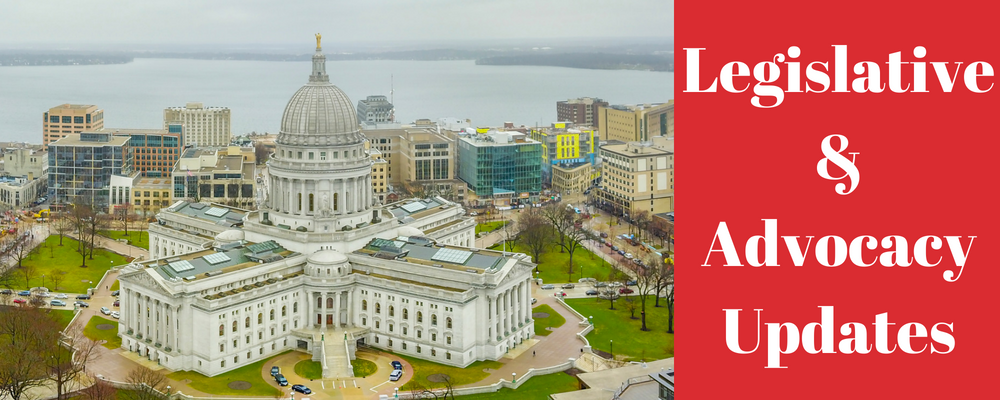
Joint Letter On Policy Discussions Regarding Students Who Are Transgender
 WSCA collaborated with the Wisconsin School Social Work Association (WSSWA) and the Wisconsin School Psychologist Association (WSPA) on a joint letter to the Wisconsin Association of School Boards regarding the school board policy discussions occurring around the state regarding students who are transgender. You can view the letter that was sent here.
WSCA collaborated with the Wisconsin School Social Work Association (WSSWA) and the Wisconsin School Psychologist Association (WSPA) on a joint letter to the Wisconsin Association of School Boards regarding the school board policy discussions occurring around the state regarding students who are transgender. You can view the letter that was sent here.
Prior to the letter being sent, WSCA brought up these issues during a weekly education stakeholder collaboration call that included representatives from WASB. WASB contacted WSCA after that call requesting information on how we advise counselors to respond to policies that contradict our ethical standards. Below is the response WSCA sent to WASB:
“As you are well aware, there is currently no federal or state legal precedent which leads to part of the conflict and tension in our schools. Many counselors do not know this and believe their ethics are then the default regardless of school district policy. This is often the first part of the conversation in helping them understand that as of today, it is up to every school district to create policies because there are no legal mandates. School counselors must follow laws first and then school district policies, and most of the time, these align with our professional ethics.
When districts create policies that contradict our professional ethics and position statements, that puts school counselors in a difficult situation as they must follow those policies if there is no other legal standing for them not to. This is where we talk about advocacy, education, and for a number of school counselors, a decision to leave their districts because they could not reconcile what they believed was best for students (with the full backing of their professional associations and ethical standards) and what they were being directed to do by school district policy. With the pending Title IX guidance update from the Biden administration, there may be more legal grounds for counselors, but at this time, there is not.
We have had our national ethical and legal expert on school counseling present a number of times (including coming to our conference in two weeks) to help counselors
navigate these challenging situations. If you would like, I would be happy to share those videos. You are also welcome to attend our conference on November 2-4 at the Kalahari to learn more. We have a number of sessions on this topic. We are currently drafting a letter to WASB in collaboration with the Wisconsin School Social Worker Association and Wisconsin School Psychologist Association with research and further information on how important this can be for our LGBTQIA+ students.
Below are some of the resources that I have shared with school counselors seeking consultation.
Resources that may be helpful for advocating with administration and school boards:
HRC Welcoming Schools
Madison School District LGBTQ+ resources
https://www.madison.k12.wi.us/student-staff-support/lgbtqia-plus
Articles from AWSA (WI School Administrators Association)
https://awsa.memberclicks.net/update-article–pronouns-and-title-ix (September 2022)
https://awsa.memberclicks.net/update-article–issues-surrounding-student-preferred-names (n.d.)
ASCA School Counselor Ethics (Updated July 2022)
https://www.schoolcounselor.org/getmedia/44f30280-ffe8-4b41-9ad8-f15909c3d164/EthicalStandards.pdf
ASCA Position Statements
DPI Safe Schools for Lesbian, Gay, Bisexual, and Transgender Students
https://dpi.wi.gov/sspw/safe-schools/lgbt
Gsafe



